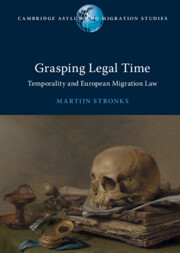Time pacing, which refers to the regulation of intensity and direction of people's attention and effort, is central to innovation management. However, in a study of complex product innovation in pharmaceuticals, we find that time pacing is a major source of conflict between managers and scientists over innovation management. Our analysis of this tension reveals that two very different forms of time pacing operate in this complex innovation. Clock-time pacing, which gauges progress by the predictable passage of clock time, is used by strategic managers to reduce unnecessary exploration, focus on necessary questions, and speed up the execution of steps. Event-time pacing, which gauges progress by the unpredictable achievement of learning events, is used by the scientists to develop a deep understanding of how a drug might behave in the body against a disease, to focus on learning by asking many questions, and to integrate emergent results into plausible patterns. We identify four dimensions that differentiate clock-time pacing from event-time pacing, which drive the tension between the two. We summarize negative effects that this tension can have on innovation if left unaddressed, and then suggest ways to integrate clock-time pacing with event-time pacing. We also discuss implications for Chinese management.
